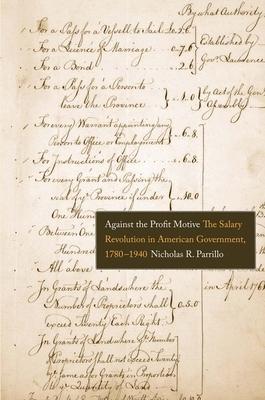
In America today, a public official's lawful income consists of a salary. But until a century ago, the law frequently provided for officials to make money on a profit-seeking basis. Prosecutors won a fee for each defendant convicted. Tax collectors received a percentage of each evasion uncovered. Naval officers took a reward for each ship sunk. Numerous other officers were likewise paid for "performance." This book is the first to document the American government's for-profit past, to discover how profit-seeking defined officialdom's relationship to the citizenry, and to explain how lawmakers--by ultimately banishing the profit motive in favor of the salary--transformed that relationship forever.
In America today, a public official's lawful income consists of a salary. But until a century ago, the law frequently provided for officials to make money on a profit-seeking basis. Prosecutors won a fee for each defendant convicted. Tax collectors received a percentage of each evasion uncovered. Naval officers took a reward for each ship sunk. Numerous other officers were likewise paid for "performance." This book is the first to document the American government's for-profit past, to discover how profit-seeking defined officialdom's relationship to the citizenry, and to explain how lawmakers--by ultimately banishing the profit motive in favor of the salary--transformed that relationship forever.
Paperback
$90.00